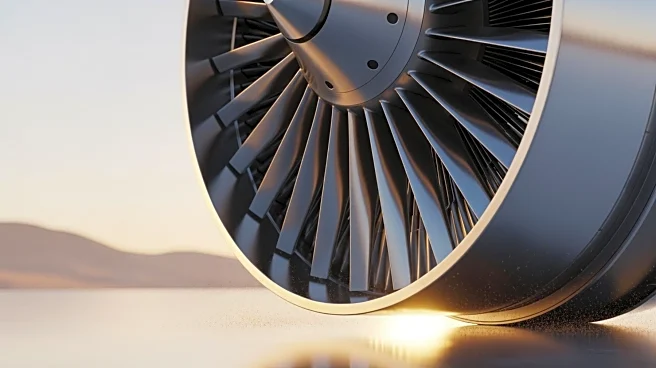What's Happening?
GE Aerospace is considering deploying its 747-400 flying testbed equipped with a GE9X engine to the Middle East in early 2026. This initiative aims to validate the operability of the GE9X engine under
harsh conditions, replicating airline-like operations. The testbed will be stationed in the region for several weeks, focusing on dust-ingestion tests using a talcum powder-like mixture developed by GE. This deployment marks a significant step in preparing the GE9X for entry-into-service on the Boeing 777-9, with the engine undergoing extensive testing to ensure reliability in dusty environments.
Why It's Important?
The deployment of the GE9X testbed in Dubai is crucial for GE Aerospace as it seeks to enhance the engine's performance in challenging conditions typical of the Middle East. Successfully validating the engine's dust resistance will bolster its reliability and appeal to airlines operating in similar environments. This move also underscores GE's commitment to innovation and adaptation, potentially setting new standards for engine durability. The results could influence future engine designs and operational strategies, impacting the aerospace industry and regional airlines.
What's Next?
GE Aerospace plans to submit final certification reports to the FAA by the end of the year, aiming for ETOPS approval by early 2026. The successful completion of dust-ingestion tests will be pivotal in achieving this certification. GE's ongoing efforts to improve engine components, such as the high-pressure turbine blade, will continue to be monitored. The aerospace community will be watching closely as GE advances its testing and certification processes, potentially leading to broader adoption of the GE9X engine.










